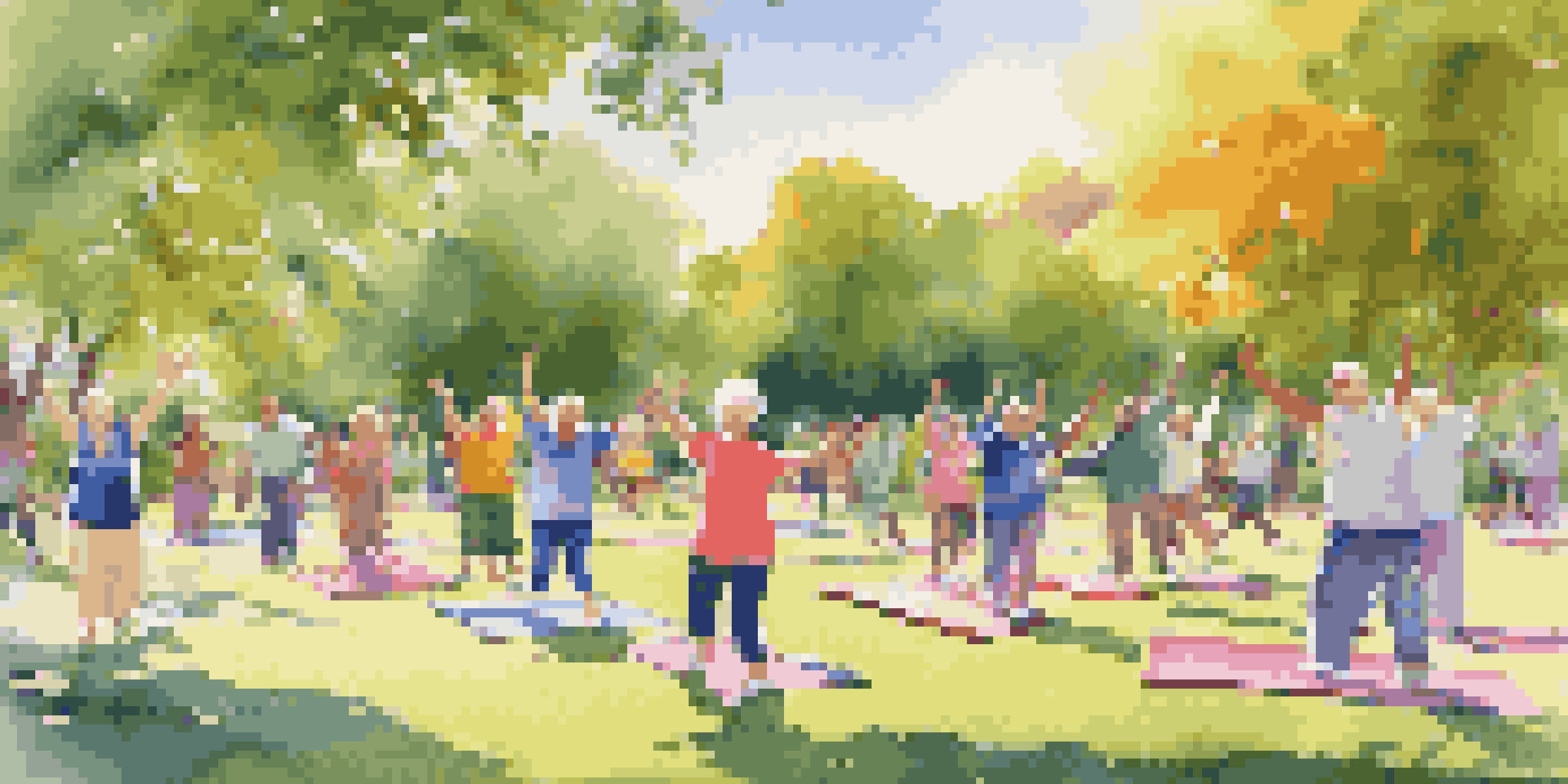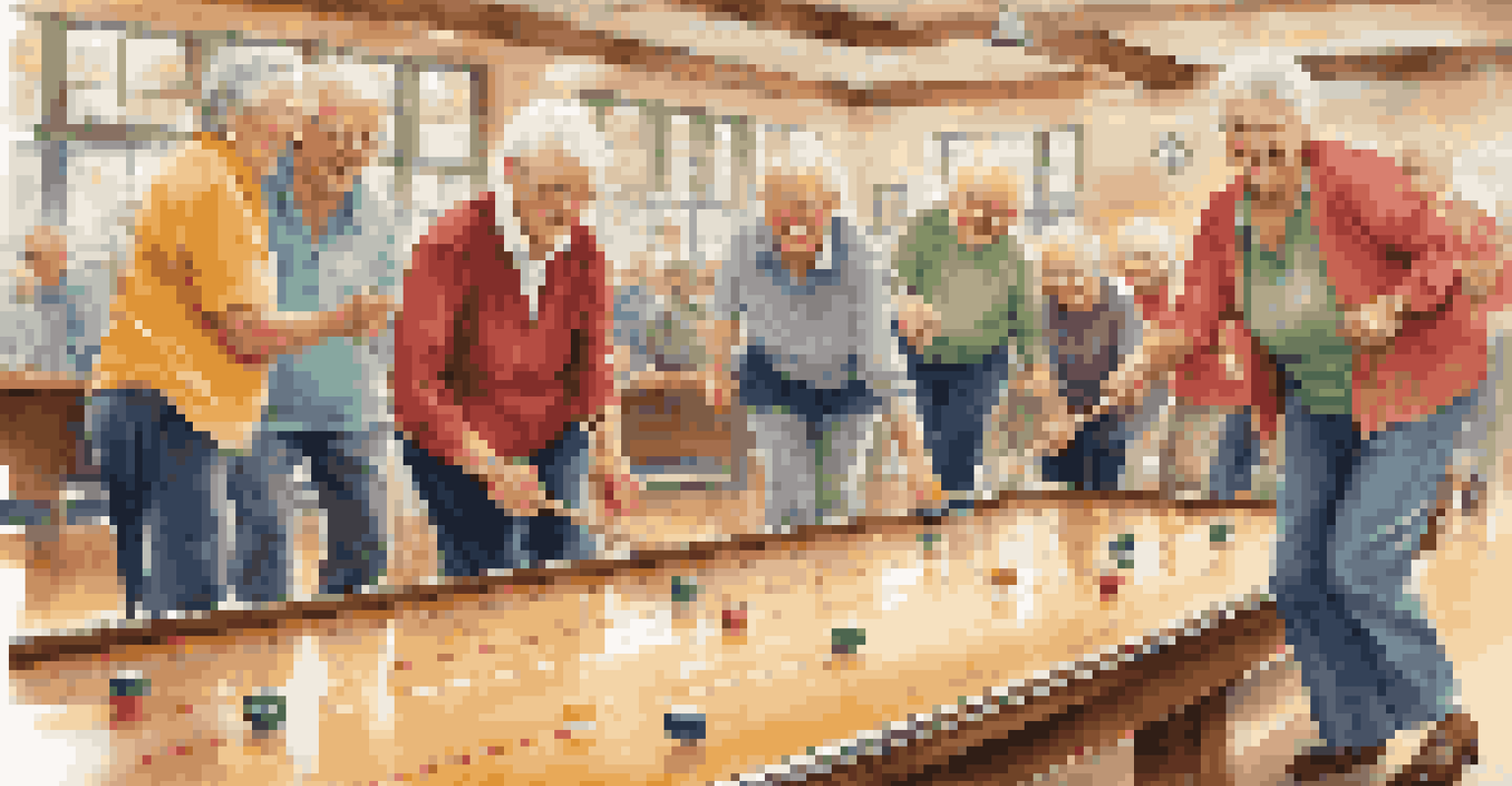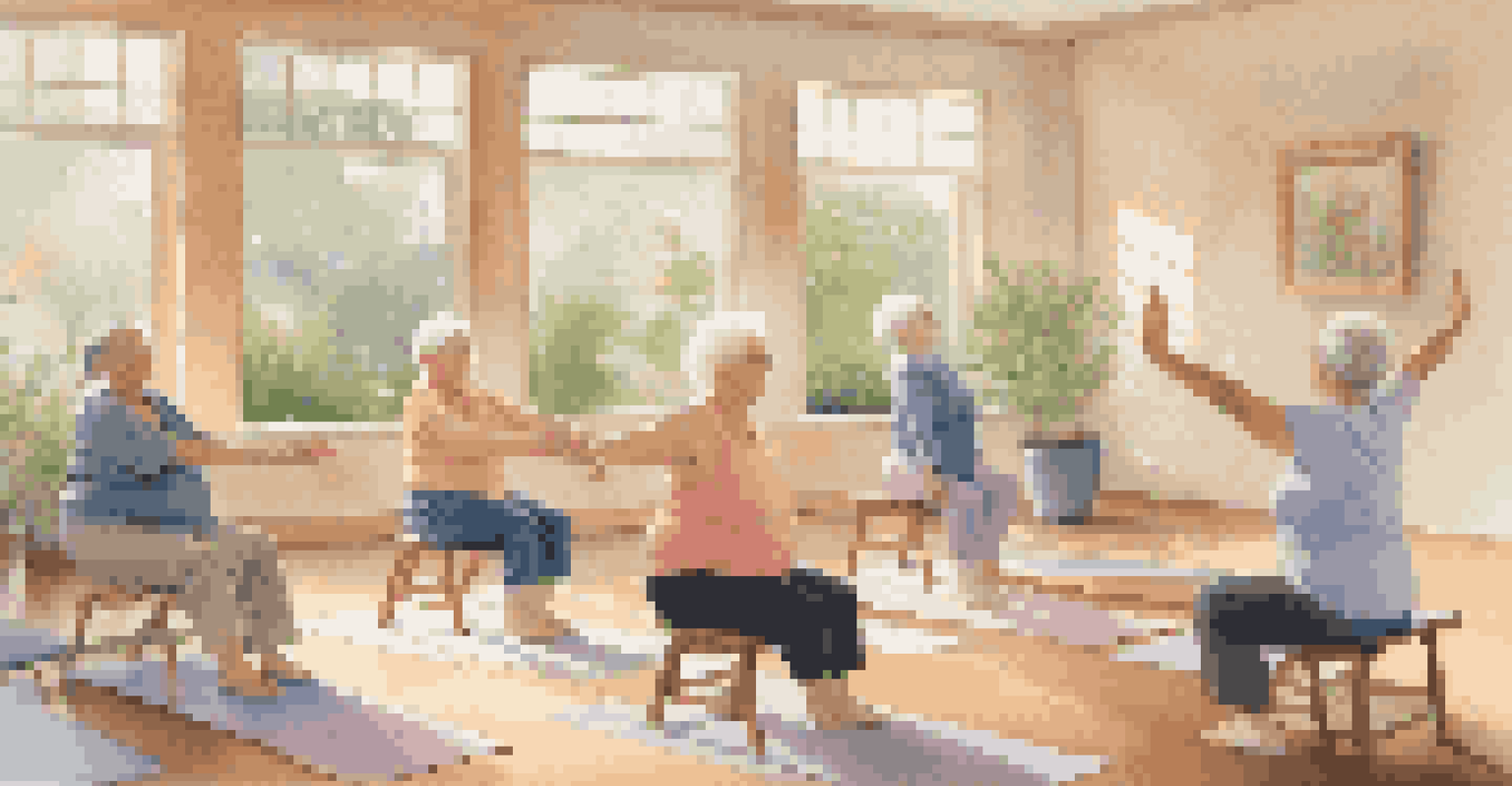Understanding the Role of Play in Senior Fitness Programs

Defining Play in the Context of Senior Fitness
When we think of play, we often picture children running around and laughing. However, play is just as important for seniors as it is for kids. In the context of senior fitness programs, play refers to activities that are enjoyable and engaging, promoting both physical and mental well-being.
The greatest discovery of my generation is that a human being can alter his life by altering his attitude.
Incorporating play into fitness routines can involve games, dance, or even simple group activities. These playful elements encourage movement in a way that feels less like a chore and more like fun. This shift in perspective can lead to increased participation and motivation among seniors.
Ultimately, play fosters a sense of community and connection, which is essential for overall health. It helps combat feelings of isolation that many seniors face, making fitness not just about physical exercise, but also about social interaction and enjoyment.
The Physical Benefits of Play for Seniors
Engaging in playful activities can significantly enhance physical fitness among seniors. Whether it's a game of bocce ball or a dance class, these activities promote cardiovascular health, strength, and flexibility. For instance, low-impact sports can improve balance and coordination, reducing the risk of falls.

Moreover, playful exercises often involve movement patterns that mimic daily activities, making them practical for everyday life. This functional fitness aspect is crucial for seniors, as it helps maintain independence. When seniors can perform daily tasks with ease, their quality of life improves dramatically.
Play Enhances Senior Well-Being
Incorporating play into senior fitness promotes both physical and mental health, fostering a sense of community and enjoyment.
Additionally, play encourages seniors to push their boundaries safely. The enjoyable nature of these activities often motivates them to try new things, which can lead to unexpected physical gains and greater confidence in their abilities.
The Mental Health Advantages of Play
Play is not just beneficial for physical health; it also has remarkable effects on mental well-being. Engaging in fun activities can reduce stress, anxiety, and symptoms of depression among seniors. When individuals are laughing and enjoying themselves, their mood naturally improves.
Play is the highest form of research.
Participating in group play fosters a sense of belonging, which is vital for mental health. Seniors who engage in social play report feeling less lonely and more connected to their peers. This camaraderie can lead to lasting friendships that enhance overall emotional resilience.
Moreover, play stimulates cognitive function. Activities that require strategy, teamwork, or quick thinking can help keep the brain sharp, potentially delaying cognitive decline. This dual benefit of play makes it a powerful tool in promoting holistic wellness.
Incorporating Play into Fitness Routines
Integrating play into senior fitness programs can be simple and effective. Fitness instructors can introduce games that require minimal equipment, like frisbee or group walking challenges. These activities can easily be adapted to accommodate different fitness levels and abilities.
Another approach is to use technology, such as video games that promote physical activity. Platforms like Wii Fit or Dance Dance Revolution can engage seniors in a playful manner while providing a good workout. This modern twist on play can be particularly appealing, drawing in those who might be intimidated by traditional exercise.
Physical Benefits of Play
Playful activities improve cardiovascular health, strength, and flexibility, while also enhancing seniors' independence through functional fitness.
Ultimately, the key is to create an environment where seniors feel comfortable and encouraged to participate. By framing fitness as a fun activity rather than just a workout, we can inspire seniors to embrace movement and improve their overall health.
Examples of Playful Activities for Seniors
There are countless ways to incorporate play into senior fitness programs. Activities like chair yoga or gentle stretching can be presented as playful routines that promote physical flexibility while being accessible for those with limited mobility. Adding music can further enhance the experience.
Group games like shuffleboard or lawn bowling are excellent for fostering social interaction. These activities require minimal physical exertion while still providing a fun and competitive spirit. Such games can be particularly enticing for seniors looking to socialize and stay active.
Additionally, arts and crafts can also play a role in promoting fine motor skills. These activities can be combined with gentle movement, creating a holistic approach to fitness that addresses both physical and cognitive health.
The Role of Community in Senior Play
Community plays a crucial role in the effectiveness of playful activities for seniors. When individuals feel supported by their peers, they are more likely to participate in fitness programs that include play. This sense of belonging can motivate seniors to be more active and engaged.
Local community centers often provide a variety of programs that incorporate playful elements. From dance classes to group games, these venues serve as hubs where seniors can connect and enjoy fitness together. The shared experience of play strengthens social bonds and fosters a positive environment.
Mental Health Gains from Play
Engaging in playful activities helps reduce stress and anxiety, while also stimulating cognitive functions and building social connections.
Moreover, creating a culture of play within communities encourages seniors to invite friends and family to join in. This not only broadens the social circle but also enhances the overall experience, making fitness a collective journey rather than an isolated endeavor.
Challenges and Solutions in Implementing Play
While the benefits of play in senior fitness programs are clear, there can be challenges in implementation. Some seniors may feel intimidated by the idea of playing games or may be hesitant to participate due to mobility issues. Addressing these concerns is vital for creating inclusive programs.
One solution is to ensure activities are tailored to different fitness levels. Offering modifications or alternative options can help everyone feel comfortable and included. For instance, providing seating options for games can allow those with limited mobility to participate without feeling left out.

Additionally, promoting a positive mindset towards play is essential. Encouraging seniors to focus on fun rather than competition can alleviate pressure and foster a more enjoyable atmosphere. When play is seen as an opportunity for enjoyment rather than a performance, more seniors are likely to engage.